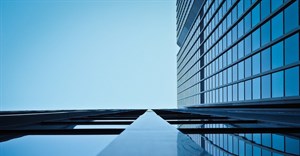Elections 2024
Elections 2024
The rise of drywall is challenging SA's construction norms

“Internationally drywall is used in most homes, both at the start of construction and for renovation purposes,” explains Asaad Manjoo, from Gyproc South Africa, a division of Saint-Gobain Africa.
“In South Africa, where the residential market makes up 52% of the building market, one of the main reasons people do not use drywall is the misconception that it is a cheap alternative and will not offer the same quality overall that a brick-and-mortar wall will.”
Contrary to these beliefs, studies have shown that high-quality drywall products can offer all the benefits of traditional brick-and-mortar construction, along with the convenience and simplicity of lightweight materials. These benefits include faster construction times, design flexibility, and sustainability, among others.
Busting the drywall myths
Drywall construction is up to 4x faster than standard masonry. This means less mess and dust. It also offers useful design flexibility and is up to 10x lighter than standard masonry, reducing the load on foundations. Unlike traditional brick and mortar, drywall does not require foundations for internal walls, making renovations easier and cleaner.
Drywall is durable and can support heavy objects such as TV stands, large smart TVs, paintings, and kitchen cabinets. It also offers superior acoustic performance, making it an ideal solution for those living in residential estates or townhouses who want to reduce noise from neighbours.
Drywall construction is more sustainable, using less water than brick and mortar and being made from recyclable materials. It also provides a crack-free appearance for easy decoration and high-performing drywall is fire-resistant.










